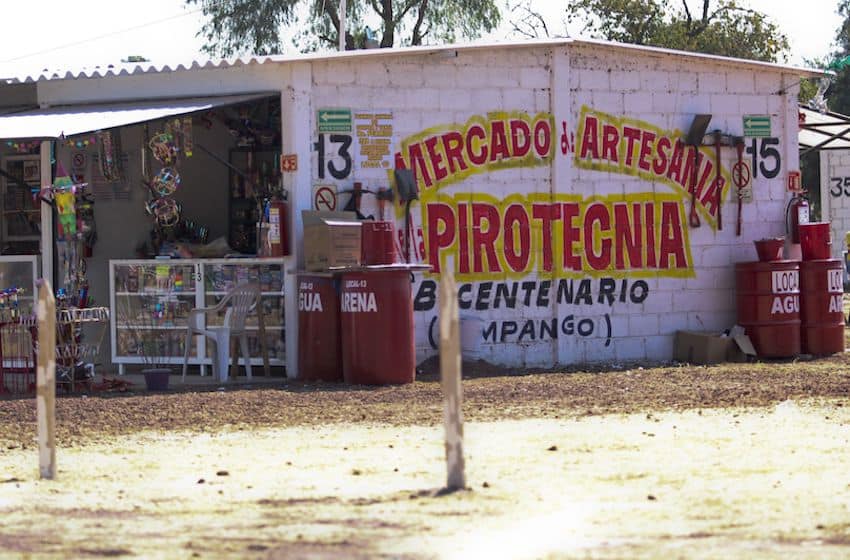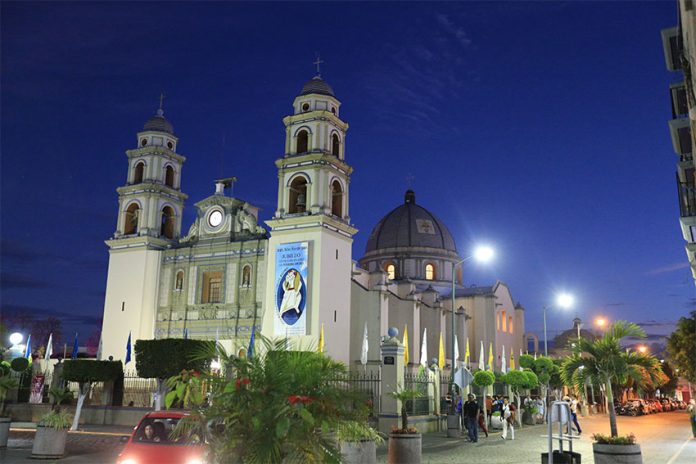Mexican media outlets reported this week that Tehuacán, the second largest city in the state of Puebla, had become the first city — not just in Mexico, but in all of Latin America — to ban fireworks, following a ruling by a federal judge on April 26. However, this information is not entirely accurate.
As it turns out, the ruling merely upholds the legality of an existing ban in the city, however the basis for the ruling is what makes it a first.

In 2019, the Tehuacán city council approved a municipal environmental protection ordinance forbidding the detonation of fireworks or similar devices that cause noise or vibrations.
Despite the ban, however, residents in Tehuacán continued to use fireworks, which led the Tehuacán-based animal welfare organization TAC A Protection of the Environment, helped by the legal team at the Puebla city human rights organization Círculo de Amparo, to file an amparo lawsuit against Tehuacan’s local environmental authority and its city council.
The lawsuit argued that the local authorities had failed to prohibit and sanction the use of fireworks in the city, despite the existence of the municipal ordinance.
On April 26, a federal judge in Puebla city found in the petitioners’ favor and urged the responsible municipal authorities to initiate a campaign to remind Tehuacán residents of the prohibition.
According to Círculo de Amparo, what makes the ruling “historic” in both Mexico and Latin America is that it is the first ruling to recognize the prohibition of fireworks based on “the hazards they pose to the environment, [to] people’s health and [to] animals.”

The ruling protects the right to a healthy environment for all residents, including animals. It also ordered authorities to implement effective measures to ensure the ban is enforced and to sanction those who illegally use fireworks in Tehuacán.
Both organizations that filed the lawsuit have argued publicly in the past that fireworks not only pose a threat to humans and animals via unplanned explosions, but also that their remnant substances pollute the environment and that their noise causes tachycardia and emotional distress to animals.
Scientists have recognized for at least a decade that large fireworks displays cause temporary spikes in air pollution that can be harmful to people with respiratory conditions such as asthma. A study by the U.S. federal agency NOAA in 2015 found that fine particulate matter (PM2.5) levels in the air of more than 300 U.S. locations rose on average 42% during the 12 hours following Independence Day celebrations.
In Mexico, fireworks are a beloved tradition for many, and commonly used during religious festivals. Nevertheless, their handling requires a special permit from the Defense Ministry (Sedena), without which it is illegal to manufacture, sell, buy, detonate or store gunpowder, explosives, devices and other chemical substances related to fireworks.
According to federal sources, Sedena granted over 2,000 such permits between 2012 to 2018. However, the number of permits Sedena issues per year has decreased notably since 2014, implying that many people currently in the industry may lack legal permits.
According to Sedena data, during 2012–2018, over 160 explosions occurred at pyrotechnics manufacturing sites across the country, resulting in more than 240 fatalities, hundreds of injuries and significant property damage.
According to the National Center for Disaster Prevention (Cenapred), the state of Puebla saw the second-highest number of fireworks-related accidents in the country between 2003 and 2021, coming in just after México state, which is known as Mexico’s “fireworks capital” due to its long tradition of artisanal fireworks makers, particularly in the municipality of Tultepec, which hosts an international pyrotechnics fair every year.
The April 26 ruling could set a precedent for other federal and local courts in Mexico to uphold similar local and state bans, perhaps eventually shifting Mexico’s culture around pyrotechnics.
Mexico News Daily
